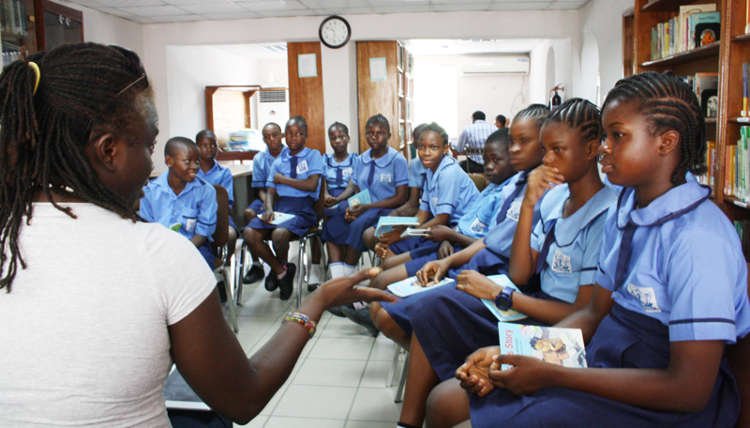The Minister of Health, Osagie Ehanire, unwittingly provided an unpleasant insight into the lopsided governance template in Nigeria when he gave a damning verdict on illiteracy and conditions of living among children in the rural areas.
It is not only in education provision that the rural areas are short-changed; every other development indicator is grim. At the root of poverty lies the deprivation of people’s access to necessities such as food, healthcare and sanitation, education and assets.
Though accommodating over 64 per cent of the country’s population, according to the National Population Commission, Nigeria’s rural areas lack access to basic amenities, and are characterised by government neglect, indifference and policy-induced poverty.
During the closing ceremony of a two-day stakeholders’ consultation towards ministerial commitment for educated, healthy and thriving adolescents and young people in West Africa recently, Ehanire, who was represented by the Head, Department of Family Health in the ministry, Salma Anas-Kolo, said that 66 per cent of Nigerian children in the rural areas could neither read nor write.
Nothing can be more disheartening and discomfiting as a gloomy future awaits such demography. Put clearly, this is a failure of leadership. English playwright and essayist, Joseph Addison, said, “Reading is to the mind what exercise is to the body.”
“The Economic Recovery and Growth Plan notes that Nigeria ranks 137 out of 140 in infant mortality rate, 10 million children are out of school, 66 per cent of children in the rural areas cannot read or write, and 17.6 million youth are unemployed,” the minister said.
More disturbing is the minister’s observation that, “In Nigeria, the possibility of a child born and achieving its full professional and economic potential is low; the Human Capital Index put this at 36 per cent. This is lower than the average in sub-Saharan African region and low and middle income countries.”
This is unacceptable and speaks to the poor governance and skewed priorities of government at the various levels over the years. Officials have placed emphasis more on building white elephants in urban centres than schools in the rural areas to increase access to education.
There is a concentration of development projects and fiscal spending in the urban areas at the expense of the rural areas. Former President Olusegun Obasanjo, for the umpteenth time, recently lamented the fate of over 14 million out-of-school children in Nigeria, conceding that lack of formal education and stagnated development are some of the biggest problems confronting the country.
The Universal Basic Education Act 2004 provides for compulsory, free and universal basic education of all children of primary and junior secondary school age in the country.
Unfortunately, the law has been largely obeyed in the breach by many states, resulting in the large population of illiterate children in the rural areas, with no punishment meted out to defaulters. There is a need for the various governments to resolutely enforce the law.
It is distressing that the country’s political leaders do not see the nexus between a huge population of deprived children and youth and social dislocation.
With the decade-old insurgency in the North-East, the orgy of killings and rural banditry in the North-West and manifestations of social unrest and deviance in other parts of the country, the urgency to address this development challenge cannot be overstated.
Among other measures, central to redressing this are refocusing government’s programmes and upgrading of basic amenities in the rural areas. Beyond lamentation, the government should initiate pragmatic steps to reverse these disturbing existential realities of the Nigerian citizens, especially the children.
The three tiers of government should invest in education, health and wellbeing in the rural areas, expand economic opportunities and promote scientific agriculture. Aside from decrepit schools, teacher shortage is endemic in the rural areas. Something should be done urgently to correct this.
The 2018 National Personnel Audit conducted by the Universal Basic Education Commission on public and private basic education schools nationwide, uncovered a shortage of about 277,537 teachers in basic education schools, with 135,319 teacher deficit at the Early Childhood Care Development Education, and 139,772 deficit in primary schools.
Incentives should be given to prospective teachers to attract them to the rural areas to bridge this gap. When faced with the arduous task of trekking a long distance to school, many children prefer to stay away. No pupil should be made to walk more than one kilometre in pursuit of education.
Provision of basic amenities in the rural areas will put a wedge on the rural-urban drift and also contribute to sustainable development. In 2018, the Chairman, Bill and Melinda Gates Foundation, Bill Gates, revealed that Nigeria was one of the most dangerous places to give birth with the fourth worst maternal mortality rate in the world. It only ranked ahead of Sierra Leone, Central African Republic and Chad.
“If you invest in their health, education and opportunities – the ‘human capital’ we are talking about today – then, they will lay the foundation for sustained prosperity. If you don’t, however, then it is very important to recognise that there will be a sharp limit on how much the country can grow,” he admonished.
Sadly, two years after, nothing in the budgetary plans of government at the various levels suggests that this wise counsel sunk in. The limited funding to education notwithstanding, transparent and accountable utilisation of funds allocated for the sector is imperative.
Post Disclaimer
The opinions, beliefs and viewpoints expressed by the author and forum participants on this website do not necessarily reflect the opinions, beliefs and viewpoints of Anaedo Online or official policies of the Anaedo Online.

